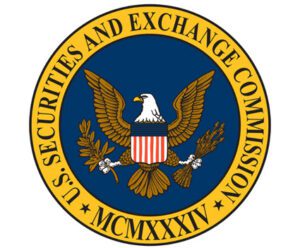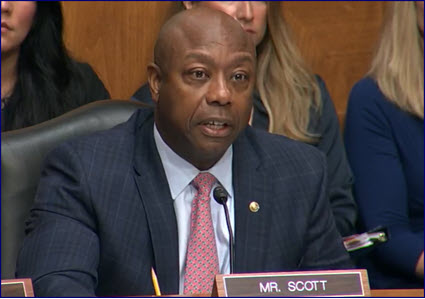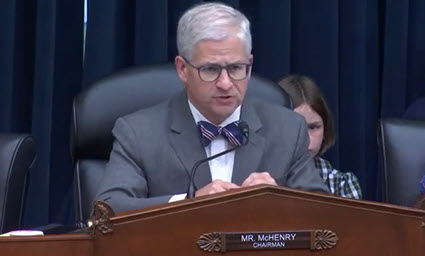
House and Senate lawmakers are looking to change current federal workforce telework policies by including language in annual spending bills under consideration by Congress. Yesterday, a House Oversight and Accountability Subcommittee held a hearing on “Oversight of Federal Agencies’ Post-Pandemic Telework Policies” and efforts to mandate federal workers return to their offices. (BGov, Sept. 14)
Federal Telework
Roundtable Calls for Workplace Return

Marcus & Millichap President and CEO, Hessam Nadji and former Chairman and CEO of Goldman Sachs, Lloyd Blankfein, will lead the live webcast discussion on the economic factors, including Federal Reserve policy, impacting the commercial real estate market. DeBoer, Tom McGee, President and CEO of ICSC and Sharon Wilson Géno, President of NMHC will join the conversation as CRE industry leaders. (Register here)

The Real Estate Roundtable and industry partners encouraged the U.S. Environmental Protection Agency (EPA) on Sept. 14 to enhance its set of effective, standardized, and voluntary federal tools that can assist real estate companies meet climate targets imposed by city and state laws. (Real estate coalition letter, Sept. 14)
EPA Standards to Quantify Emissions

Anticipated SEC Climate Rules

The Biden administration’s emphasis on climate policy will continue this fall, when it is expected to propose a uniform federal definition on the long-term concept of “zero emissions buildings.” The Roundtable’s SPAC will convene a working group to analyze the definition upon its release for public comments.
# # #

The Roundtable and a diverse group of 25 trade associations this week wrote to Securities and Exchange Commission (SEC) Chair Gary Gensler to oppose a proposed Safeguarding Advisory Client Rule—in its current form—and explain the negative impacts it would have on investors, including their access to various services, assets, and markets with well-established rules and procedures. (Coalition letter, Sept. 12)
Inconsistent and Duplicative
Policymaker Pushback

The Roundtable’s Real Estate Capital Policy Advisory Committee (RECPAC) established a Custody Rule Working Group, which is working on comments about the SEC proposal that are due October 30. The working group also plans to meet with the SEC’s Division of Investment Management.

The Roundtable and a broad coalition representing millions of businesses throughout the country wrote to House Financial Services Committee Chairman Patrick McHenry (R-NC), above, this week in strong support of his legislation—the Protecting Small Business Information Act of 2023 (H.R. 4035). McHenry’s bill would delay the date when the Corporate Transparency Act’s (CTA) beneficial ownership reporting requirements go into effect, currently scheduled for Jan. 1, 2024. (Coalition letter, Sept 12 and McHenry news release, June 12)
CRE Impact
CTA Rule Burdens

The Roundtable is also part of a broad coalition of business trade groups that supports a National Small Business Association legal challenge (NSBA v. Janet Yellen) on the constitutionality of the Corporate Transparency Act (CTA), which became law in Jan. 2021. (Coalition statement of support, Dec. 7, 2022 and NSBA’s website on the CTA)